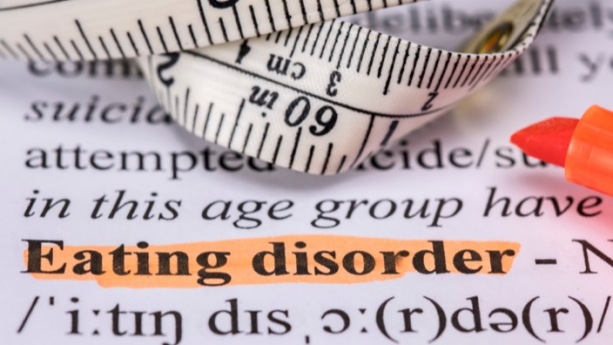Care, Support, & Recovery Articles
When Your Relationship With Food Gets Complicated…

By Heather Clark, LCPC
According to the National Eating Disorders Association, “Eating disorders are serious but treatable mental and physical illnesses that can affect people of all genders, ages, races, religions, ethnicities, sexual orientations, body shapes, and weights. National surveys estimate that 20 million women and 10 million men in America will have an eating disorder at some point in their lives.” On top of that, millions more have complicated, painful, obsessive, or harmful relationships with food and their bodies, but don’t meet the technical criteria for a formal diagnosis.
So what are eating disorders?
Eating disorders are super complex mental health conditions that impact a person’s thoughts, behaviors, and feelings about food and their bodies, and that interfere significantly with their ability to live their day-to-day lives. They are not something a person chooses to do or not do. Some of the biggest contributing factors to developing an eating disorder are: body dissatisfaction, family members with eating disorders, perfectionism, cultural ideals of thinness. Dieting - including the lifestyle-change-du-jour - is also a major risk factor, which is important because of how common it is. You should also know that eating disorders are the second most deadly of all mental illnesses, second only to opioid use disorder. So these are very serious conditions!
How do I know if I (or someone I love) have an eating disorder?
The best way to find out if you or a loved one is struggling is to seek out a mental health professional who specializes in eating disorders. Rock Recovery is a local non-profit that provides accessible eating disorders care with specialized therapists, who are also equipped to integrate Christian faith in therapy, if that’s something you’re looking for. Some other helpful resources are the Screening Tool on the NEDA website, and the Clinical Assessment service provided by ProjectHEAL. That being said, you do not need to meet the criteria for formal diagnosis to deserve and need treatment and care. If food and body issues are taking up more brain space and energy than you want them to, don’t hesitate to get help. And, who knows? By getting help now, you may just prevent yourself or your loved one from having to suffer through a more intense experience of disordered eating later.
How can I best support a loved one in getting help?
First, know that people need both support people and they need professionals - both roles are important and necessary, and neither one can fill the other one’s shoes. So there’s no pressure to try to be a therapist or dietitian for your loved one. Express your concerns gently and clearly. Try to pinpoint specific behaviors, such as, “I’ve noticed you eating smaller and smaller amounts at meals, and I feel really concerned.” Ask whether they’d be willing to share with you what’s going on with their relationship with food and their body. Offer to research options, make calls, and/or send emails with them, to help them get connected to care. Maybe even go with them to appointments, if that feels supportive to them. And remember, if you are supporting a loved one in recovery, it’s important to be sure that you are getting the support you need as well. There are plenty of support groups for loved ones.
Where do I start?
Rock Recovery is a great place to start. First, if you’re reading this blog, chances are that Christian spirituality is important to you; the team at Rock Recovery gets that about you, respects it, and encourages you to incorporate that part of your life and yourself into your recovery journey. Second, all of their services are offered on a sliding scale, which means that prices can be adjusted according to financial need. Rock Recovery doesn’t want finances to be a barrier for anyone in getting the care they deserve and need, in order to find freedom and healing in their relationship with food and their body. They offer both group and individual therapy for residents of the DMV, as well as national faith-based support groups. Schedule a Zoom call to find out if it’s a good fit for you here.
For national resources or to find treatment in your area if you live outside of DC, MD or VA, you can check out our partners - The Alliance for Eating Disorders Awareness.
Heather Clark, LCPC is a licensed counselor and the Clinical Director at Rock Recovery. Heather specializes in treating disordered eating, including binge eating disorder, bulimia, anorexia, body dissatisfaction, chronic dieting, intuitive eating, and orthorexia. She also enjoys counseling those dealing with anxiety, self-worth, shame, self-compassion, and Christian spirituality/spiritual trauma. Heather is passionate about the Health At Every Size(R) philosophy and approach to work (and to life!).